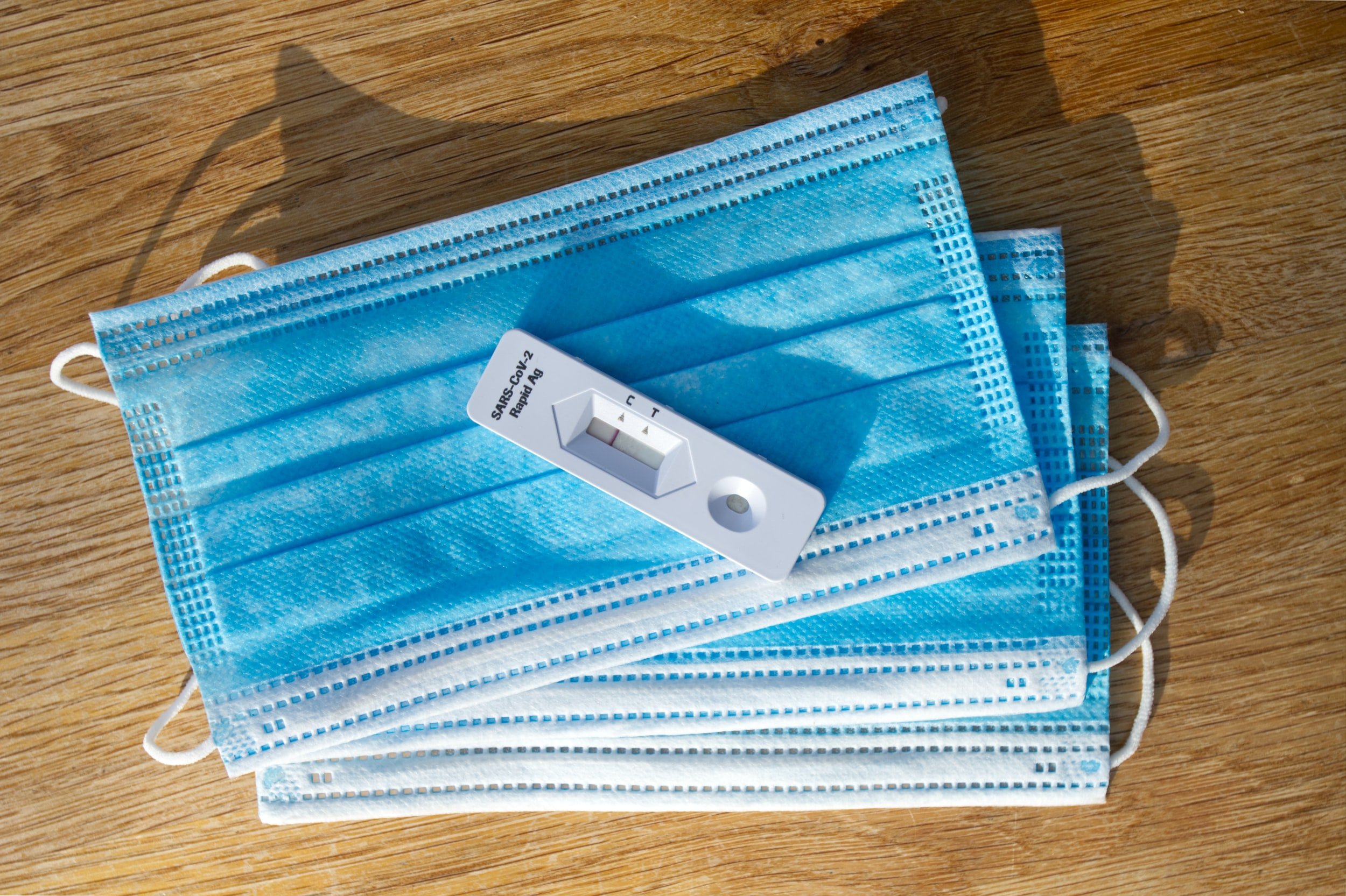It Came Just The Same
As soon as I saw the second line show up on my COVID test, I felt an inescapable sense of dread. After all, I’d spent two years trying to avoid getting sick - and here was the irrefutable evidence that something bad was going to happen to me.
I already knew I wouldn’t be asymptomatic, because I woke up with a very sore throat and a fever. What I didn’t know was whether I would get severe enough to have to go to the hospital, something I knew would push me out of control in my head.
Ever since my first (and extraordinarily unpleasant) hospital experience nearly ten years ago, I have developed coping mechanisms for anything that could bring me there - and that brings me a sense of control over a situation I feel powerless to fight against. I know which distractions to bring, which medical papers I need, and which people to call to come help.
But the problem with COVID is that no one can come over to help. Whether or not I needed to go to the hospital, there was one unavoidable thing I was afraid of: being alone.
I got angry at my therapist when she suggested I take a COVID test, even though I felt sick, because I was in denial. I didn’t want to face the situation I was afraid of, no matter what that meant. I wanted to pretend that everything was normal even when it felt like the world was falling down around me. I wanted to be the same girl who, nearly ten years ago, went to class instead of going to the hospital when I had a blood clot.
I was so deep in denial that even when I caught a glimpse of the second line on the COVID test signifying a positive result shortly before the timer was up, I convinced myself that the line would go away by the time I was supposed to look at it.
But in the end, I had to face it. None of my denial or distraction could stop the virus from coming. I couldn’t help but think of a moment from “How The Grinch Stole Christmas,” one of my mom’s favorite cartoon movies: “He hadn't stopped Christmas from coming! It came! Somehow or other, it came just the same!”
And once it came, there was nothing I could control or change. I just had to settle in with lots of beverages and soup and prepare for whatever happened.
As things turned out, I was feeling too sick for the first two days to stress too much. I couldn’t talk much, and between my sore throat and fever, I had plenty of things to concentrate on besides anxiety.
As I got better, I started to actually have to face the illness head-on. I spoke with my internist, used medical equipment, and started to accept that everything was real. I even started to pack a bag for the hospital when I used my brand-new pulse oximeter machine incorrectly and it displayed an oxygen level of 94.
In the end, thankfully, I didn’t need to do anything like that. After the third day, my symptoms improved day by day. Even if it was only a tiny improvement, I took heart in that and felt encouraged that the worst was over. And, about a week after I first showed symptoms, I was feeling like myself again. Another few days (I followed the CDC’s guidelines religiously), I was able to leave the house; now, I’m resettling into the rhythm of my life.
Looking back on the week, I can’t believe several things. First of all, I only panicked once - the moment I saw the positive test for the first time. I know part of this is because I wasn’t feeling well, but still, my friends and family were pleasantly surprised at how much my therapist’s advice helped me, that I didn’t fly off the handle.
I was also pleasantly surprised at how many people stepped up to offer companionship (virtually), food, and various other kinds of help when I wasn’t feeling well. As someone who grew up without many friends, I felt like I was part of a loving community and that the help I often give to others was coming back to me.
It’s also hard to believe that I was able to face the truth that I was in a situation that scared me a great deal instead of pretending it wasn’t real. As someone who would prefer to be imagining a fantasy universe instead of living in the real world, the fact that I could live in the moment in a situation I’d built up in my head to be a terrifying thing for the last two years showed me that I can, in fact, be strong in the face of sickness - no matter what my childhood germaphobia would have me believe.
Ellie, a writer in the Chicago area, was diagnosed with OCD at age 3. She hopes to educate others about her condition and end the stigma against mental illness.

